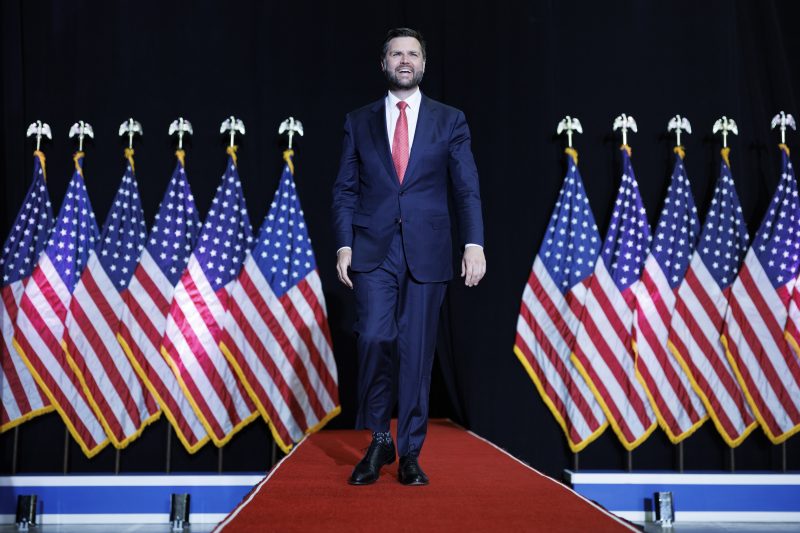In recent political discourse, there has been growing speculation about the Republican Party possibly experiencing ‘buyer’s remorse’ following the emergence of J.D. Vance as a potential candidate. This analysis delves into the various factors that contribute to this conjecture and explores the implications for the party and its constituents.
J.D. Vance, a former venture capitalist and author of the bestselling memoir Hillbilly Elegy, has garnered significant attention within Republican circles due to his outspoken views on issues such as economic populism, social conservatism, and the need for a shift in elite leadership. His background as a vocal critic of both the left and the right has positioned him as a potentially transformative figure within the party.
However, despite his rising popularity, some prominent conservatives have expressed reservations about Vance’s candidacy. Criticisms range from his lack of political experience to concerns about his commitment to conservative principles. This has fueled speculation that Republican voters may eventually regret their enthusiasm for Vance, leading to what has been termed ‘buyer’s remorse.’
One key area of contention is Vance’s stance on crucial policy issues. While he has advocated for a more populist approach to economic challenges and social issues, questions remain about the consistency and depth of his beliefs. Skeptics argue that his lack of a clear track record in public office leaves uncertainty about how he would govern if elected.
Furthermore, Vance’s unorthodox style and rhetoric have also raised eyebrows among some traditional Republicans. His blunt criticism of the party establishment and his willingness to challenge conventional norms have polarized opinions within the GOP. This has fueled concerns that his candidacy could exacerbate existing divisions and alienate certain segments of the party base.
The specter of ‘buyer’s remorse’ looms large over the Republican Party as it navigates a complex political landscape. While J.D. Vance represents a departure from the status quo and presents an opportunity for renewal, his candidacy also carries inherent risks and uncertainties. Ultimately, the extent to which Republican voters will stand by their choice in the face of potential regrets remains to be seen.
In conclusion, the emergence of J.D. Vance as a high-profile figure within the Republican Party has sparked a dynamic debate about the future direction of the party. As the speculation about ‘buyer’s remorse’ continues to simmer, it is clear that the GOP faces a critical juncture in defining its identity and values. Only time will tell whether Vance’s candidacy will be a transformative force or a source of regret for the party and its supporters.




























